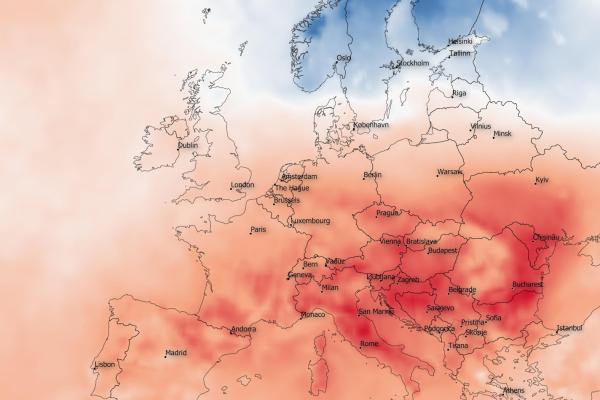
Cities can be key agents of change in addressing global warming, being “natural” sites for innovative and experimental climate action in a progressive direction. They are responsible for a substantial portion of global greenhouse gas (GHG) emissions, making them key players in climate change mitigation and adaptation.
They are also recognised as hubs for innovation and as places with many opportunities for collaboration with civil society. However, cities can also be hotspots of injustice, leading to displacement, inequality, marginalisation, poverty. To fully leverage cities' potential as agents of change, they must thus be "justice-aware" when developing climate policies.
A JRC study evaluating justice concerns in climate decision-making processes finds that the more cities exert efforts in addressing climate change goals, the more they are likely to take climate justice concerns on board when designing and implementing climate efforts, regardless of geographical categorisation.
It sheds light on the awareness of the social justice aspects of climate action, evaluated across its recognitional, distributive, procedural, and intergenerational dimensions. Climate justice can be a useful policy lever to develop measures that promote simultaneously greenhouse gas emissions reductions and their social justice dimension, thus reducing the risk of adverse impacts.
What differences among various categories of cities?
The results suggest that wealthier cities could more likely attain social justice goals when planning and implementing climate action. Cities that consider their economic, financing, and communication strategies as favourable city-specific features are also more likely to be climate justice-aware. The findings also suggest that cities that receive cross-sectoral support from higher governance levels are more likely to consider justice dimensions in planning their climate action.
However, city authorities’ perception of favourable geo-climatic conditions is negatively related to climate justice awareness. This suggests that a favourable climate might reduce the perceived urgency of climate action and the consideration of the social issues associated with it.
These linkages can be read as assistance needs that cities perceive in their pathway to just climate neutrality and highlight where future efforts in research and policy-making should focus in the following years to pave the way to a just transition.
This study uses data from the EU Mission on 100 Climate Neutral and Smart Cities by 2030, an initiative involving local authorities, citizens, businesses, investors as well as regional and national authorities.
Thanks to the dataset – collated through the answers provided by the cities through a dedicated questionnaire – the authors built an unprecedented portray of where hundreds of European cities stand in terms of climate mitigation and climate ambition; and developed a scientifically robust index of climate justice awareness.
This index not only helps us compare different cities, but also find out what makes them more aware of the need to achieve social justice goals when planning their climate actions.
The study also investigates the different approaches different cities adopt in dealing with climate change, and it considers factors like the size of the city, the national context, and the local GDP per capita. Overall, the study’s quantitative assessment of climate justice awareness can help cities consider how and where to reach more social justice goals when planning their climate policies.
Background
The need for this study arises from the growing importance of climate justice in the context of climate change discussions and the urgency of addressing this issue at the local, particularly urban, level.
Climate justice, defined as justice in relation to the effects of responses to climate change, is a concept that has gained prominence in recent years, but its operational value remains a subject of debate. The study aims to fill a crucial gap by evaluating the operational value of climate justice in climate decision-making processes, specifically at the urban level.
Other initiatives focusing on climate action and climate justice:
- The Global Covenant of Mayors for Climate & Energy, the largest global alliance for city climate leadership. Covenant cities commit to climate mitigation, climate adaptation, and energy access. Climate justice is a critical guiding principle across all the three pillars of the initiative.
- the Commission Recommendations on Energy Poverty (2020 and 2023), the Council Recommendation on ensuring a fair transition towards climate neutrality, and the Regulation of the European Parliament and of the Council establishing a Social Climate Fund.
Details
- Publication date
- 17 November 2023
- Author
- Joint Research Centre
- JRC portfolios




